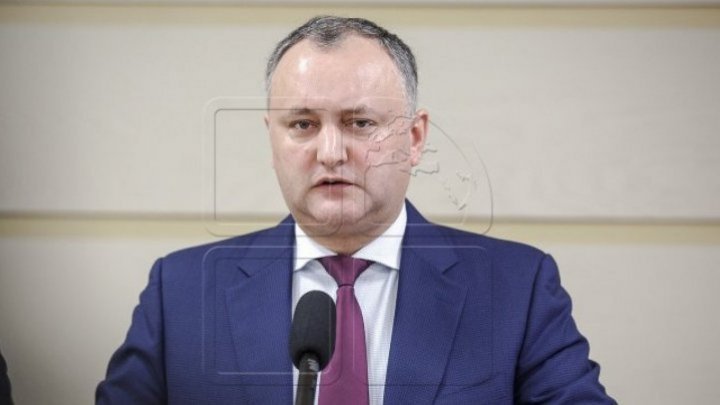Political analysts view Dodon's Transnistria special status as camouflage to plunge Moldova into Moscow's hands
 foto: publika.md
foto: publika.md
Many political analysts view President Igor Dodon's proposal to give Transnistria region special status as an attempt to camouflage the Kozak plan to federalize Republic of Moldova. Although Dodon insisted on his good offer for a strong autonomy, not the federalization plan.
Andrei Andrievschi, the political analyst, commented that Russian plan of federalization was under the cloak of this status.
"Russia organized this change of power in our country and supported a new governing alliance. It's not an act of charity. Neither is it a caring for Moldovan democracy. It means something. It's another camouflage of Kozak plan through controlling Tiraspol. It will control our future as a result", said Andrievschi.
According to the experts, the real Moscow's plan is to control Moldova's foreign policy.
"This document is elaborated and aimed to plunge Moldova into Moscow's hands. It prevents Moldova from heading to the European path", said doctor in international law, Vitalie Gamurari.
Moreover, they notify that Tiraspol administration is unlikely to accept the region's legal and constitutional integration into the Moldovan component. Under these circumstances, Igor Dodon only made populist declarations.
"Either the federalization plan, or President is unaware of the current situation, he considers the situation is uncertain. People are occupied with other problems. When they are aware of Kozak-2 variant, it will be late", said Ion Leahu, former member of CUC.
Recently, Russian Foreign Minister Sergey Lavrov said that Moscow is calling for a return to the principles of the Kozak plan, when it comes to solutions for the Transnistrian conflict resolution. He also mentioned that all the principles on which Russia is based in relation to the Transnistrian problem were laid down in the early 2000s, when Dmitry Kozak proposed a plan to solve it.
The signing of the memorandum was to take place in 2003, but then-President Vladimir Voronin changed his mind at the last moment. Lavrov believes that he was pressured by the EU, which did not want the dispute resolved to be seen as a diplomatic victory of Russia.
President Dodon has promoted a new version of this plan. To federalize Moldova was one of Dodon's conditions to create a coalition between PDM-PSRM. But then the head of state insisted that the phrase "federalization" be replaced by "special status". Democrats rejected this plan.
Former PDM leader Vladimir Plahotniuc motivated that he would never trade his country and accused the PSRM informal leader of treason. Therefore, the PSRM, at the suggestion of Dodon and Kozak, made an alliance with PAS and PPDA.